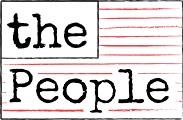Civics U: The Right to Privacy
The Bill of Rights, the first ten amendments to the Constitution, enumerates rights that are considered fundamental and necessary rights of individuals in a free society: right to freedom of religion, freedom of speech, et al.
There is another right that many regard as fundamental and equally important: the right to privacy. But this right is not included in the Bill of Rights, at least not explicitly. However, it underlies and is implied in several of the explicit rights. For example, freedom of religion encompasses the right to hold beliefs privately; and the prohibition against having to house soldiers in one’s house guards the privacy of citizens’ homes.
So what is the right to privacy? What does it include, and what are its limits?
The Merriam-Webster Law Dictionary defines the right to privacy as “the right of a person to be free from intrusion into or publicity concerning matters of a personal nature.” One practical definition is Justice Louis Brandeis’ description as simply “the right to be left alone.”
Matters of a personal nature that have been protected by case law include parents’ teachings to their children; the privacy of marriage relationships, including intimate matters between a married couple, and the right to not testify against one’s spouse; the freedom in one’s home to read and watch materials of one’s own choosing. A unique right of privacy is the confidentiality of communication between a client and their attorney.
Not all rights are clearly defined, and some are subject to change. For example, the right to maintain and express one’s own identity has received some court protection but also is subject to many limitations: employees may be subject to dress and style requirements by employers; Native American students have been required by schools to cut long hair in spite of its traditional cultural meaning. And debate continues about whether abortion if properly understood and legally protected as an individual and private “right”.
And the right to privacy does not prevent law enforcement from searching a person’s home when justified in terms of possible illegal activity.
Violation of a person’s privacy commonly comes as “invasion” of privacy. And even here, the definition of ‘invasion’ can be complicated. For example, in earlier years when marijuana use was becoming more common, a school principal who had reason to suspect that a student was under the influence of marijuana in their system could require the student to provide a urine sample for testing. But then a court decided that collecting such a sample constituted an invasion of the student’s privacy.
Today there is concern and debate about invasion of privacy in several forms. One concern is the collecting of personal identity information and financial information by sales and marketing companies, by financial institutions, by internet social media sites, by government agencies, and others. In this connection “hacking” constitutes invasion of privacy on a large scale. And the possible capability of new technologies to collect information about people through their phones, computers, and other devices raises new concerns and calls for further scrutiny and controls. The freedom to travel ‘privately’ – i.e., without having to get approval, go through checkpoints, registering one’s destination, etc., is taken for granted. But even now, according to this article, “Police using car-top cameras to photograph license plates”, new technology enables police to easily record vehicle license plates in parking lots, on highways, and elsewhere; and steps are being taken to restrict using this to only when there is justifiable cause. There is a need to protect people’s right to privacy from invasion in these new contexts.
Responses to the COVID-19 virus have also generated debate about people’s right to privacy. The practice of airlines asking passengers about their vaccination status has been challenged as an invasion of passengers’ privacy. The current plan by the Pentagon to require all servicemen to get anti-COVID shots is being challenged on several bases, including as being unconstitutional in terms of servicemen’s freedom of religion and conscience and a right to privacy in making their own decisions.
The right to privacy seems to be one of those “natural and inalienable rights.” Within families and communities and workplaces people may know many things about other people’s private (personal and work) lives. And what is appropriately sharable may vary within cultures and social or institutional subcultures. But even then, ‘gossip’ is frowned upon and often upsetting because it involves sharing information (true or false) about another person’s matters that is meant to be private.
The right to privacy remains part of a person’s freedom.

